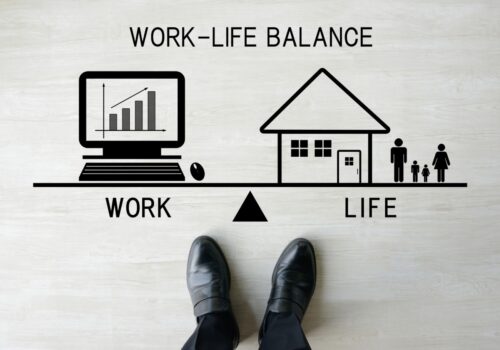In the fast-paced world of corporate culture, employees need to work hard, meet tight deadlines, manage relationships, and stay constantly connected. Such a scenario can be genuinely testing for a human and often leads to burnout, anxiety, depression, and stress. The one thing that can help people sail through such challenging situations and even become successful is resilience. Workplace resilience helps make the most of stressful situations through skills and effective management. It is also a strategy to combat employee stress, resolve conflicts, and protect against what most employees feel is the number one stressor in their lives.
What is Resilience
Resilience is how well a person can manage and bounce back from a challenging situation. It is also an acquired behavioral trait where people can regulate their thoughts and emotions to look at challenging situations as opportunities for success. Resilience has nothing to do with people who are positive because positivity does not necessarily make a person resilient. It is resilience that makes a person positive and crucial to well-being.
Resilient employees handle stress well and are better at tasks that might seem unapproachable to others. It also leads to less anxiety, better health, and function. Today, employers are finding it necessary to provide health and mental support resources to cultivate resilience in the workplace so that employees are better equipped to meet challenges with experience, skill, energy, and focus.
The Five Pillars of Resilience
The concept of resilience relies heavily on what is now called the five pillars of resilience. All these elements are interlinked, and building upon them makes people resilient to help them manage stress and problems in life. These five pillars of resilience can reframe our thinking so we see ourselves and the world around us in new ways. The same concept can be applied to the workplace.
- Self-awareness: Realizing who you are
- Mindfulness: Awareness of the present
- Self-care: Ability to function in the presence of adversity
- Positive relationships: How we bond with others for a happier well-connected life
- Purpose: Recognizing our significance in the larger scheme of things
Why a Workplace Needs to Cultivate Resilience
- Long working hours, job strain, insecurity, colleague conflicts, and poor social support in a workplace lead to workplace stress, poor productivity and prolonging of targets and goals.
- 65% of US employees say that job stress is the top stressor in their lives.
- Those who work in a stressful environment are more likely to develop stress, anxiety, and depression.
- Negativity and stress in the workplace lead to poor physical and mental health for employees and the organization.
- Unhealthy work environments have been linked to premature employee deaths in the US.
- Workplace stress with no support leads to alcohol and substance abuse.
The Importance of Resilience in the Workplace
Resilience is crucial to the well-being and health of an employee. A resilient workforce is more motivated, productive, capable of handling change, and less susceptible to stress and burnout. Employers addressing mental health concerns in the workforce significantly contribute to organizational success. Here are the reasons why resilience is so essential in the workplace.
- It Promotes a Healthy Work Culture
Resilience can cultivate healthy work culture, greater job satisfaction, organizational commitment, and higher employee engagement. It also results in less absenteeism, lower healthcare costs, improved performance, and mindfulness on the job.
- Employees Take on Challenges Better
Resilience prevents negativity and thoughts from clouding judgement, allowing employees to approach workplace issues with more composure and reason. Individuals who focus on resolving a problem rather than assigning responsibility easily find common ground and a constructive solution.
- It Ensures Effective Work Management
Resilience helps employees develop skills to manage stressful work situations, develop healthy competition and approach tasks with an open mind. Building resilience in a workforce allows them to see opportunities as success, resulting in employers reaping the benefits of such positivity and productivity.
- Creates Achievers and Empowered Employees
Employees with greater resilience are less susceptible to being intimidated by work challenges, deadlines, and targets. They view unfavorable circumstances in the workplace as an unavoidable aspect of working life that needs to be dealt with. Overcoming such obstacles fill employees with a sense of achievement and accomplishment, cultivating a sense of self-worth and significance in the organization.
- Cultivates Innovation and Creativity
Those with high resilience are frequently more self-assured and confident. They are active and more constructive in communication. Sharing ideas within a business is essential for exploring options and new ideas and fostering creativity among the workforce.
- Creates a Competitive Business
Adapting to change and employee cooperation helps businesses survive industry problems and difficulties. Retaining employees after significant changes is crucial to an organization’s health and survival; in this case, resilience allows employees to adapt to the necessary changes. Resilience helps employees see changes as opportunities for growth, a key element in the development and success of a company. CV-Library, UK’s largest job site, found that almost 75% of employers value a willingness to adapt.
- Creates a Clearer Picture
Lack of communication and setting boundaries leads to conflicting expectations. Resilience helps employees understand what they need and what they can expect from others. When expectations are perceived within capabilities, it leads to a more friendly workplace.
How to Build Resilience in the Workplace

Building resilience in a workforce requires time, self-introspection, and practice. With the proper support through seminars, tools, and training, office managers can help individuals develop for better work culture. Here are some tips for building resilience in the workplace.
- Understand Employees: Supported and motivated employees are better equipped to overcome obstacles and distractions. Resilient employees make resilient organizations.
- Analyze Strengths and Weaknesses: Encourage employees to identify their strengths and weaknesses. This helps them focus on success and opportunities for growth.
- Improve Emotional Well-being: Positive emotional resilience in the workplace helps employees break out of bad habits. It encourages replacing negative thoughts with healthier realistic ones.
- Support Physical Well-being: Support employee’s need for rest and recreation. Rested and healthy employees are happy employees willing to be resilient in work for the sake of the organization.
- Encourage Critical Thinking: Critical thinking requires employees to think logically instead of emotionally. This helps people acknowledge how much they know or don’t know and are open to learning more.
- Build Relationships: Relationships help remove a toxic atmosphere in the workplace. It builds genuine employee connections and encourages commitment to healthy team effort and cooperation.
- Engage Leadership: Set by example and make team leaders be part of resilient programs. This will set an example to the workforce, strengthen resilience, and cultivate a commitment to development.
- Organize Resilience Training: Resilience must be part of a dynamic work environment. Resiliency training elevates performance, productivity, and work engagement. According to a report by the American Heart Association, resilience in the workplace, a company can implement several strategies to improve employee health and organizational performance.
- Create A Resilient Culture: An organization can build a resilient culture by supporting and strengthening employee relationships. There should be high transparency and trust between employees and management, with team leaders and managers trained to understand the importance of employee well-being. Employees should be respected, hard work acknowledged and frequently motivated through positive psychology in the workplace.
Conclusion
While resilience in the workplace needs to be nurtured, it is not impossible. Humans, for the last 250,000 years, have shown an aptitude for being resilient and coping with challenges. Thus, employees can build new skills and become more aware of their importance in the workplace. Resilient employees possess the power to change, commit, perform, and cultivate a healthy corporate landscape for their and an organization’s success.
















